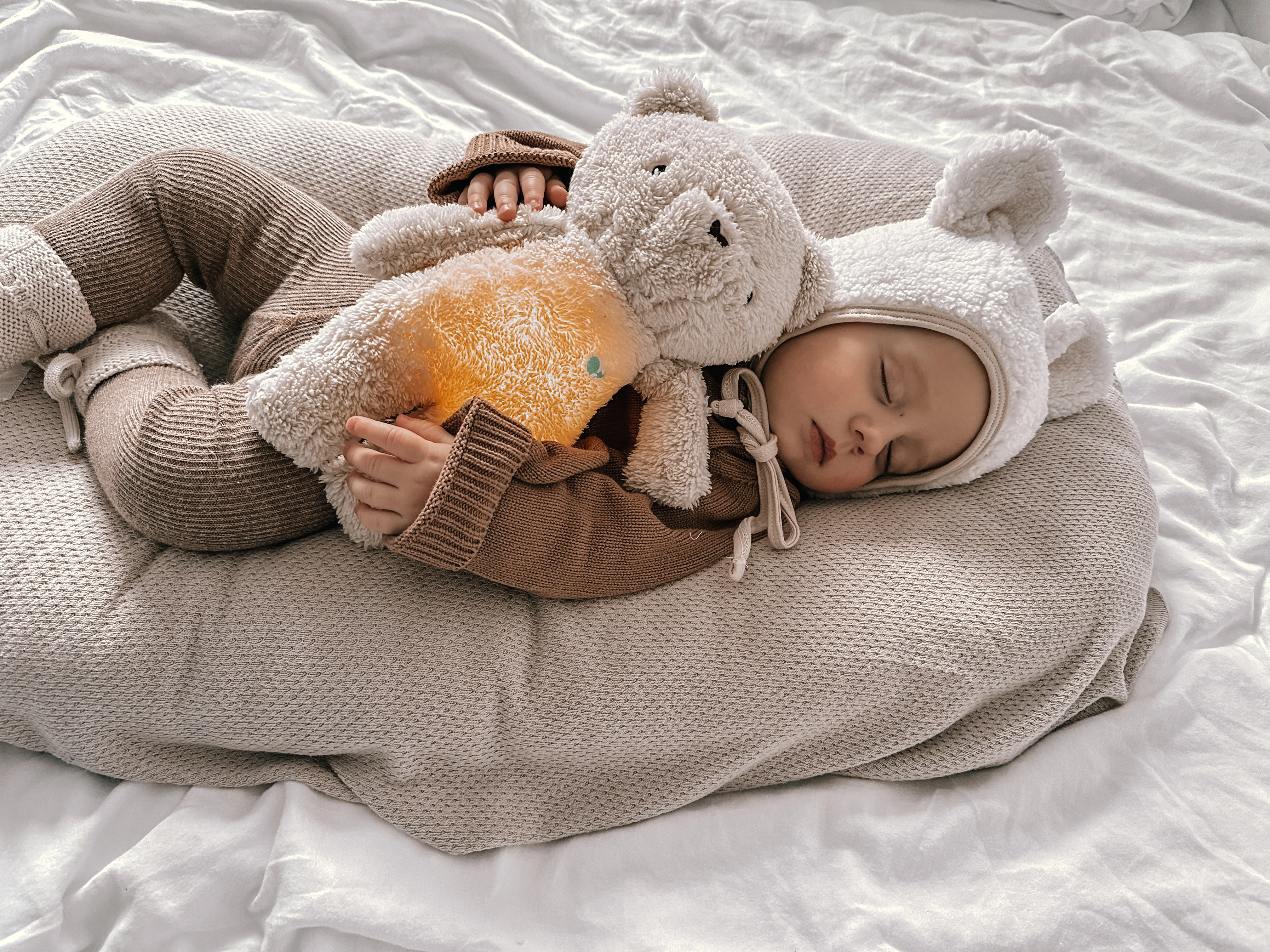Why Do Babies Wake Up at Night? Understanding Baby Sleep Patterns
Blog
8
Why Do Babies Wake Up at Night? Understanding Baby Sleep Patterns
As parents, one of the biggest challenges is dealing with frequent nighttime awakenings. Whether your baby is 5 months old and fussy at night or experiencing sleep regression at 8 months, understanding why your baby wakes up so often can help you find solutions to improve sleep for both baby and parents.
Understanding Baby Sleep and Night Wakings
Baby sleep patterns evolve constantly. It's completely normal for a 6-month-old baby to wake up every 2 hours. These wake-ups can be caused by hunger, discomfort, or developmental changes. Many babies at this age haven't mastered the skill of falling back asleep on their own and may need comforting sounds, like white noise from plush toys like myHummy, to soothe them.
If your baby wakes up multiple times a night, observe their behavior—are they truly crying, or just making small noises in their sleep? Establishing a bedtime routine and a calming sleep environment can help reduce frequent wake-ups.
Why Do Babies Cry in Their Sleep?
Sometimes, babies cry at night without fully waking up. These nighttime cries often happen during sleep cycle transitions. A baby at 5 months might have restless sleep as their brain processes new skills, leading to sudden movements and crying.
If your baby cries at the same time every night, it could be linked to a specific sleep phase. Some infants struggle to transition between cycles, leading to full wake-ups. White noise from toys like myHummy can provide a comforting, continuous sound that helps babies settle back into sleep.
Sleep Regressions: A Common Challenge
Sleep regressions occur at key developmental stages, such as around 8 months or 2 years old. Even babies who previously slept well may start waking up frequently. This is often due to cognitive and motor skill advancements, like learning to walk or talking.
Maintaining a consistent bedtime routine and using sleep aids like white noise can help babies navigate these transitions more smoothly.
When Should You Worry About Nighttime Crying?
If your baby screams in their sleep or cries without waking up, it could be a sign of night terrors, which are more common after 6 months and can last up to 4 years. Unlike nightmares, night terrors don’t usually require parental intervention.
However, if your baby wakes up crying multiple times and cannot be comforted, check for common discomforts like room temperature, teething pain, or digestive issues. A stable sleep environment with soothing sounds can minimize disturbances.
Helping Your Baby Sleep Better
To improve sleep, try these tips:
✔ Create a bedtime routine – Dim lights, speak softly, and keep a calm atmosphere.
✔ Minimize overstimulation – Avoid screens or loud activities before bed.
✔ Use white noise or soothing sounds – myHummy plush toys provide continuous comfort.
✔ Encourage self-soothing – Allow babies a moment to settle before rushing in.
By understanding your baby’s sleep needs and adjusting their environment, you can help them (and yourself) get better rest.
